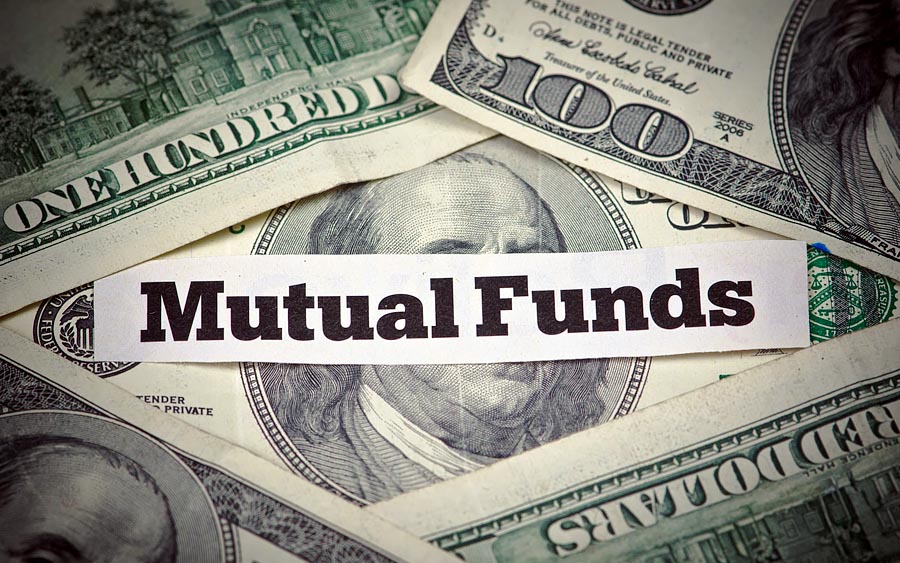Fund managers across the country are taking advantage of the rising demand for dollar-based investments to sell dollar-based mutual funds targeted at retail investors.
A survey of some of the major fund managers in the county reveals a significant rise in the number of mutual funds based on investments in the US dollars with a promise to return an average of 5% per annum.
The Nigerian economy is experiencing rising cost of goods and services and galloping inflation that has eroded the purchasing power of most Nigerians. To make matters worse, the exchange rate at the parallel market has depreciated beyond N500/$1 making it difficult for most investors to trust naira assets.
Mutual fund managers appear to have seen this demand and moved quickly to offer various investments that cater to the investment needs of most people particularly, those looking for investments that can help hedge against foreign currency risk and provide some form of preservation of wealth.
READ: Meet Jim Simons, the wealthiest hedge fund manager in the world
Proliferation of Dollar Funds
In one of the offers seen by Nairametrics, Futureview Financial Services Fund Managers is seeking to raise about $1.5 billion at a price of $100 per bond unit.
- The Fund claims it provides investors with an opportunity to invest through the Fund Manager or an approved Agent and targets investors whose objective is capital preservation with return on investment that is commensurate with the risk inherent. This it hopes to achieve through investments in dollar-denominated Eurobonds, floated by the FGN. Investors in this particular bond can buy a minimum of 5 units at $100 per unit and multiple thereafter.
- Another advert by a commercial bank, Providus Bank, woos investors with a promise of 5% return per annum on dollar investments. All you need to have is $5,000 and you are locked in for a minimum tenor of 180 days.
READ: Naira reverses gain at black market as CBN moves to increase forex allocation to BDCs
- Meristem, one of the largest investment firms in Nigeria, informed its investors that the investment in dollar funds “offers you a shield from currency risk” and that it is a great way to spread your investment and reduce your risk exposure. The Meristem dollar investment goes for a minimum of $2,000 for a minimum of 6 months.
- Cordros Capital, another investment house, informs investors that its dollar funds help clients diversify their portfolio and also helps them hedge against the risk of local currency devaluation. The fund invests in US dollar-denominated securities like Sovereign Eurobonds, Corporate Eurobonds, Money Market instruments and other quoted Corporate Eurobonds.
There are many others in the financial landscape targeted at investors looking for alternative investments that can help hedge against inflation and foreign currency risk. By design, these investments are specifically targeted at high-income earners who have savings that can be converted into dollars or who already keep dollars in a domiciliary account.
Most of the fund managers invest in dollars in low-risk and often low-yielding Eurobonds issued by the government or dollar funds issued by corporates. In it for them are the fees and commissions received as fund managers which often run into tens of millions of naira, just enough to cater to the slim workforce mostly made up of investment managers and admin staff.
READ: Mutual Funds launch picks up, despite large withdrawals
The market is big enough
Nairametrics estimates the total net asset value of dollar mutual funds as of June 18 is about N156 billion (converted to naira) with Stanbic IBTC Dollar Funds making up a huge chunk of the total with N137 billion naira. In today’s dollars, the net asset value of dollar funds is about $380 million or just about 10% of the mutual fund market in Nigeria. This suggests that there is room for more funds to be created and the existing ones to be marketed to more potential investors.
Central Bank data reveals over $23 billion flowed into the economy through autonomous sources of domiciliary accounts. Nairametrics estimates about $18 billion is held by Nigerians in dollar domiciliary accounts in commercial banks. The last time the CBN published the domiciliary account deposits was in 2019 when it was just over N6 trillion or $16.6 billion (assuming N360/$1 exchange rate at the time).
CBN Actions
While CBN restrictions continue to stifle the flow of forex from one account to another, Nigerians are increasingly left with little choice but to find ways to put their investments to work. Some bankers who spoke to Nairametrics on condition of anonymity revealed that to transfer dollars from one account in a bank to another account in another bank is nearly impossible due to forex restrictions.
Doing so requires evidence of use of the transfer requiring depositors to provide invoices backing the need for the transfers. The same applies for investments in some of these dollar funds. To transfer money to a fund, you will need to provide evidence to the bank that the funds are meant for investments in a mutual fund.
But must you invest in a mutual fund?
Nairametrics checks reveal the alternatives are not many. To invest directly in a Eurobond or any dollar bond, investors will need above $25,000. This amount falls right in the purview of high net worth individuals. The alternative is to leave the money lying in bank deposits earning an interest rate next to zero.
